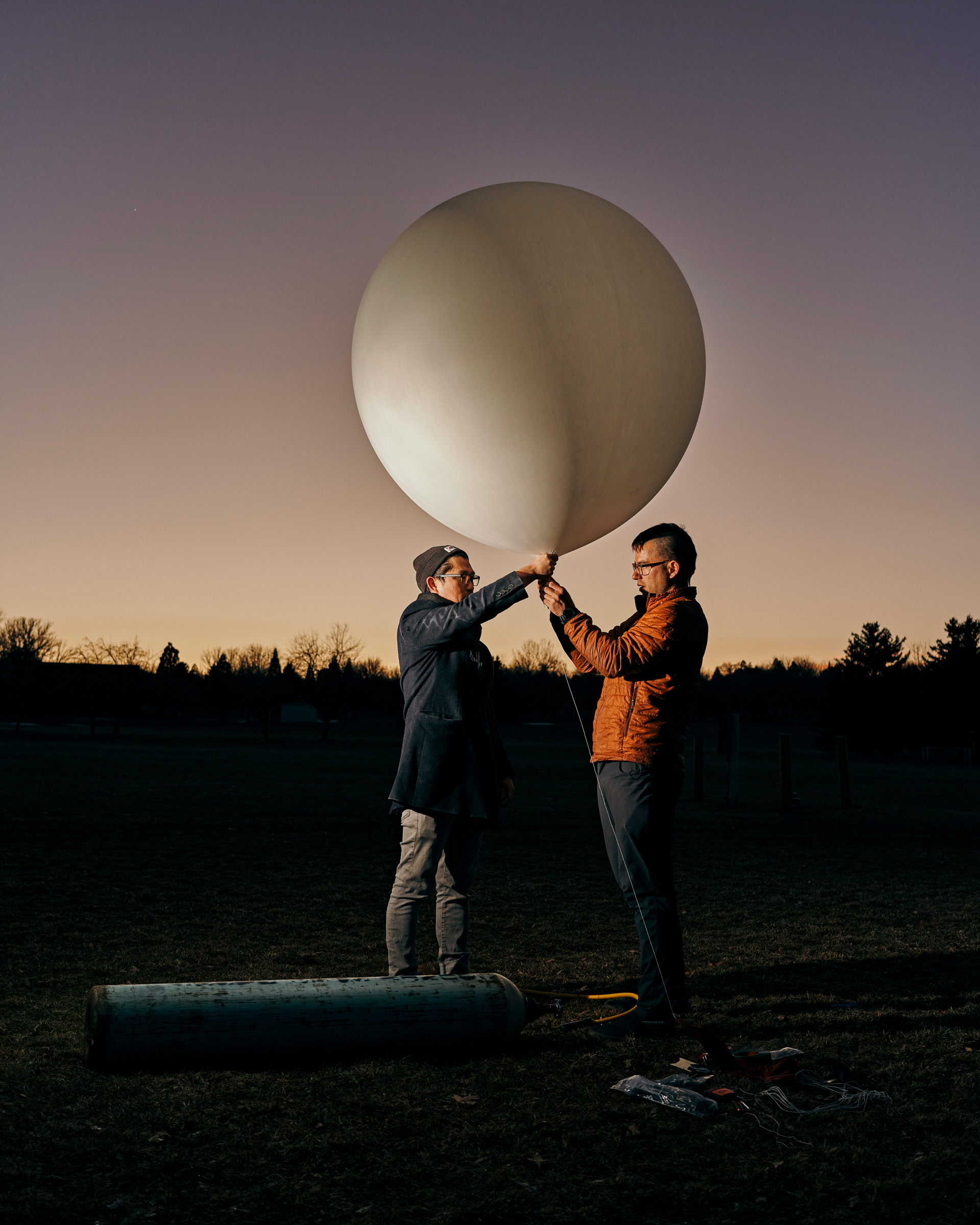A company behind a recent controversial effort to cool the earth by use of sulfur dioxide being released into earths upper atmosphere has broken the cardinal rule of experiments. It’s gone rogue. The US company is called Make Sunsets, and unfortunately conducted a rogue experiment with out any consent or permission in 2022. Currently, Make Sunsets is canceling its upcoming experiments in Mexico, following a rebuke from the Mexican government.
According to ‘Climate Change News’
“In 2022, the US startup Making Sunsets launched an unauthorised experiment from two sites in the northern Mexican state of Baja California. The company claims it launched balloons injected with sulphur dioxide particles into the atmosphere, which were not monitored nor recovered.
The company’s co-founder Luke Iseman said he conducted the experiment in Baja California because he lives there.
The Mexican government said the experiment was carried out “without prior notice and without the consent of the Government of Mexico and the surrounding communities”.
Making Sunsets is already selling “cooling credits” for future balloon flights with larger amounts of sulphur dioxide for $10 each.
“Your funds will be used to release at least 1 gram of our ‘clouds’ into the stratosphere on your behalf, offsetting the warming effect of 1 ton of carbon dioxide for 1 year,” the company claims on its website.
Lily Fuhr, deputy program director at the Center for International Environmental Law (Ciel), said in a statement that by offering a “cheap and easy quick fix” to the climate crisis, the company “plays into the hands of the fossil fuel industry”.
“Solar geoengineering is too risky and ungovernable to pursue. We support the Mexican government in their plan for a ban and call on them to immediately stop the new flights that ‘Make Sunsets’ has announced for January 2023,” Fuhr said.
PHOTO- Founder Luke Iseman and co-founder Andrew Song of solar geoengineering startup Make Sunsets hold a weather balloon filled with helium, air, and sulfur dioxide at a park in Reno, Nevada on February 12, 2023. Balazs Gardi for TIME

A recent United Nations report found that this practice, known as stratospheric aerosol injection or (SAI), “has the potential to reduce global mean temperatures”.
However….
Climate engineers have also discovered that geoengineering “cannot fully offset the widespread effects of global warming and produces unintended consequences, including effects on ozone”.
The UN convention on Biological Diversity established a moratorium on geoengineering in 2010, in the absence of enough scientific data and regulations.

By March 27, 2023 Reuters news had released this report , in part stating
“MEXICO CITY, March 27 (Reuters) – On an April day, the founder of a U.S. startup called Make Sunsets stood outside a camper van in Mexico’s Baja California and released two weather balloons containing sulfur dioxide into the air, letting them float towards the stratosphere.
Entrepreneur Luke Iseman said the sulfur dioxide in the balloons would deflect sunlight and cool the atmosphere, a controversial climate strategy known as solar geoengineering.”
Mexico said the launch violated its national sovereignty and banned the experiment from entering it’s country ever again.
“The Mexican government said Make Sunsets’ balloon launch highlighted the ethical problems of allowing private companies to conduct geoengineering events.” That seems fair and logical, right?
They continued with “Why is this company, located in the United States, coming to do experiments in Mexico and not in the United States?” said Avila.
Great Question, right?
Mexico released the following report and documentation in January 2023 from it’s own government website known as Gobierno De Mexico(Transcript has been translated into english. If you would like the mexican version, click here. )
The Transcript reads:
“Experimentation with solar geoengineering will not be allowed in Mexico
Semarnat and Conacyt will carry out actions adhering to the precautionary principle to protect communities and environmental settings.
Ministry of Environment and Natural Resources | January 13, 2023 | Release
- Studies show negative impacts due to the release of these aerosols and that they cause meteorological imbalances.
- There is an international moratorium that remains in force against the deployment of geoengineering.
To prohibit and, where appropriate, stop experimentation practices with solar geoengineering in the country, the Government of Mexico, through inter-institutional coordination between the Ministry of Environment and Natural Resources (Semarnat) and the National Council of Science and Technology (Conacyt), will carry out actions attached to the precautionary principle to protect communities and environmental environments.
The United Nations (UN) Convention on Biological Diversity, to which Mexico is a party, established in 2010 a moratorium that is still in force against the deployment of geoengineering.
The opposition to these climatic manipulations is based on the fact that there are currently no international agreements that address or supervise solar geoengineering activities, which represent an economically advantageous way out for a minority and risky for the supposed remediation of climate change.
For this reason, Semarnat will implement a strategy that prohibits these practices within the national territory, which will serve to strengthen the first references worldwide. Under the precautionary principle and the bases established in the Montreal Protocol, which promotes the protection of the ozone layer and the fight against climate change, any large-scale practice with solar geoengineering in its territory will be stopped, which presumes to be technologies of large scale, but are still under development.
Conacyt will coordinate with experts the review of existing rigorous scientific research to expose the serious risks that solar geoengineering practices represent for the environment, people and their community settings.
In addition, work is being done to make relevant information available to the general public on the subject of geoengineering that has been promoted in recent years by companies, scaling up investments so that, without scientific support, they perceive them as alternative technologies to face the impacts of climate change. .
Solar geoengineering practices seek to counteract the effects of climate change, through the emission of gases into the atmosphere such as: sulfur dioxide, aluminum sulfate, among others. This process induces the sun’s rays to be reflected back into space, thus avoiding the increase in temperature in a specific geographical area.
However, there are enough studies that show that there would be negative and unequal impacts associated with the release of these aerosols, which cause meteorological imbalances such as winds and torrential rains, as well as droughts in tropical areas; in addition to generating impacts on the thinning of the planet’s ozone layer.
Recently in the state of Baja California Sur, the Startup Make Sunsets, carried out technical experiments of this type, launching meteorological balloons with sulfur dioxide, without prior notice and without the consent of the Government of Mexico and the surrounding communities. In the blog of the Make Sunsets website, the company states that it does not know the results of the experiment, since the balloons were not monitored or recovered.
The Government of Mexico reiterates its unavoidable commitment to the protection and well-being of the population against practices that generate risks to human and environmental security, working in a coordinated, rigorous and responsible manner for the well-being of the people of Mexico.
Joint Press Release No. 3/23
Mexico City, January 13, 2023.”
Note that the Mexican government told Reuters it is now actively drafting “new regulations and standards” to prohibit solar geoengineering inside the country. Mexico also plans to rally other countries to ban the climate strategy, a senior government official told Reuters.
Sources:
Mexican Government Press Release


Solar Engineering should not be confused with chemtrails. Solar engineering is Solar Radiation Management, and it doesn’t mean it’s good either. These guys were sending balloons up into the stratosphere, then popping them to release metal nano particulate “flakes” to block the sun. The part that really bothers me is that where do those flakes land? In crops? On our kids?